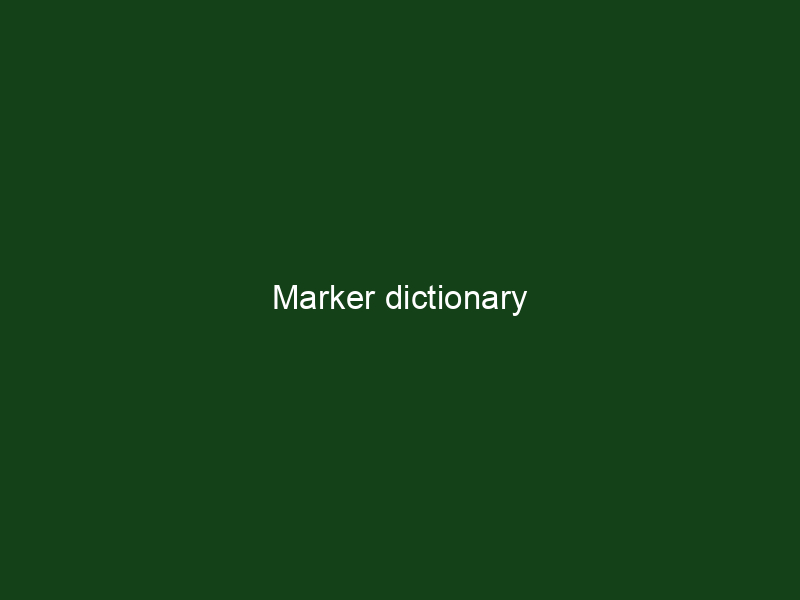Occasionally you will need to make a marker dictionary. This method is typically required for medical and legal students, because the terms they use may be so abstract and complex that no reasonable markers can be created spontaneously. To some extent, a large quantity of number memorization (via major system/PAO) or memorization of foreign words (via syllables) may also cause you to create a marker dictionary.
The most basic form of marker dictionary is introduced by peg system. There are two types of peg systems with markers based either on audio association or visual association. Do click through the articles in previous sentence: they contain some bonus information. So you end up with 5=hive or 5=hook, and you can use the same methodology to make more markers.
Each word you need to remember will probably consist of several markers which you want to link into a compound image or a short animation. Using story method will help you to memorize, but then you will still need a visual representation for the story itself to use it with your mental palaces and mindmaps. You may also use a groups of 3 markers using PAO or equivalent.
How do you make sure you remember your markers? You can use anki or evernote or a similar tool that allows you to review words and images and you scroll through them for several days, until you remember the markers perfectly. If you do not use your markers for a while you will forget them and may need to find them again. If you keep forgetting a marker, maybe it is not a good marker and you should come up with alternative representation.
You can use markers not only for specific ideas (nouns) but also for actions and relations (verbs?). These logical markers will be built similarly to the regular markers, only the first and the last object of the animation will be fuzzy, e.g. replaced by the idea markers you want to use there.
It is recommended to use premade markers together with spontaneously generated markers and thematic details to create unique visualizations, otherwise your visualizations will become stereotypical and generic e.g not memorable. Unlike mental palaces (where you want to have several houses/templates), it does not really help to have several markers per word. With premade markers try to be simple. If these markers get overly colorful they may take focus from the spontaneous markers. Also you may want to use them when talking, so try to stay civilized with these markers. Fortunately you have a lot of time to choose wisely when making the markers.
If you cannot come up with any premade marker for a particularly tricky term, ask your friends in our support group. If you ask on mastermind group, I will personally help you build the markers.

Get 4 Free Sample Chapters of the Key To Study Book
Get access to advanced training, and a selection of free apps to train your reading speed and visual memory


could you help in some premade markers
For specific issues please write [email protected]
I’m new to this just brought your book. I just saw a youtube video of this guy who memorizes the who dictionary which is my goa
The man who learned the dictionary
https://www.youtube.com/watch?v=PDcVKtyryPw&t=15s
If short on time jump to 5:28sec
2 questions:
1.Does he use the PAO system or the major system or both? I am a very strong visual memory but week with sound.
2.In Yates book the whole point of the memory palace is to jump around. Example, I might start with a route of my house but I don’t have to think about getting to my bedroom I just know, just I just know where the bathroom is I don’t need to fellow a yellow brick road.
However, how can this guy jump from page 568, 230, 18, 53, 742 back and fourth left and right yet still know where everything is?
I never used any major system. When memorizing words I encode each syllable into PAO type of content using the words starting with that particular syllable. See what works best for you.
Very large memory palaces are built like some sort of cities. People often visualize whole landscapes with streets, houses, parks etc. If you know what is located at some address, you can simply go there and recite the whole palace.
Personally, I do not quite see any reason to memorize a dictionary. The return on investment is not that good. It could be easier and more rewarding to learn new subjects.